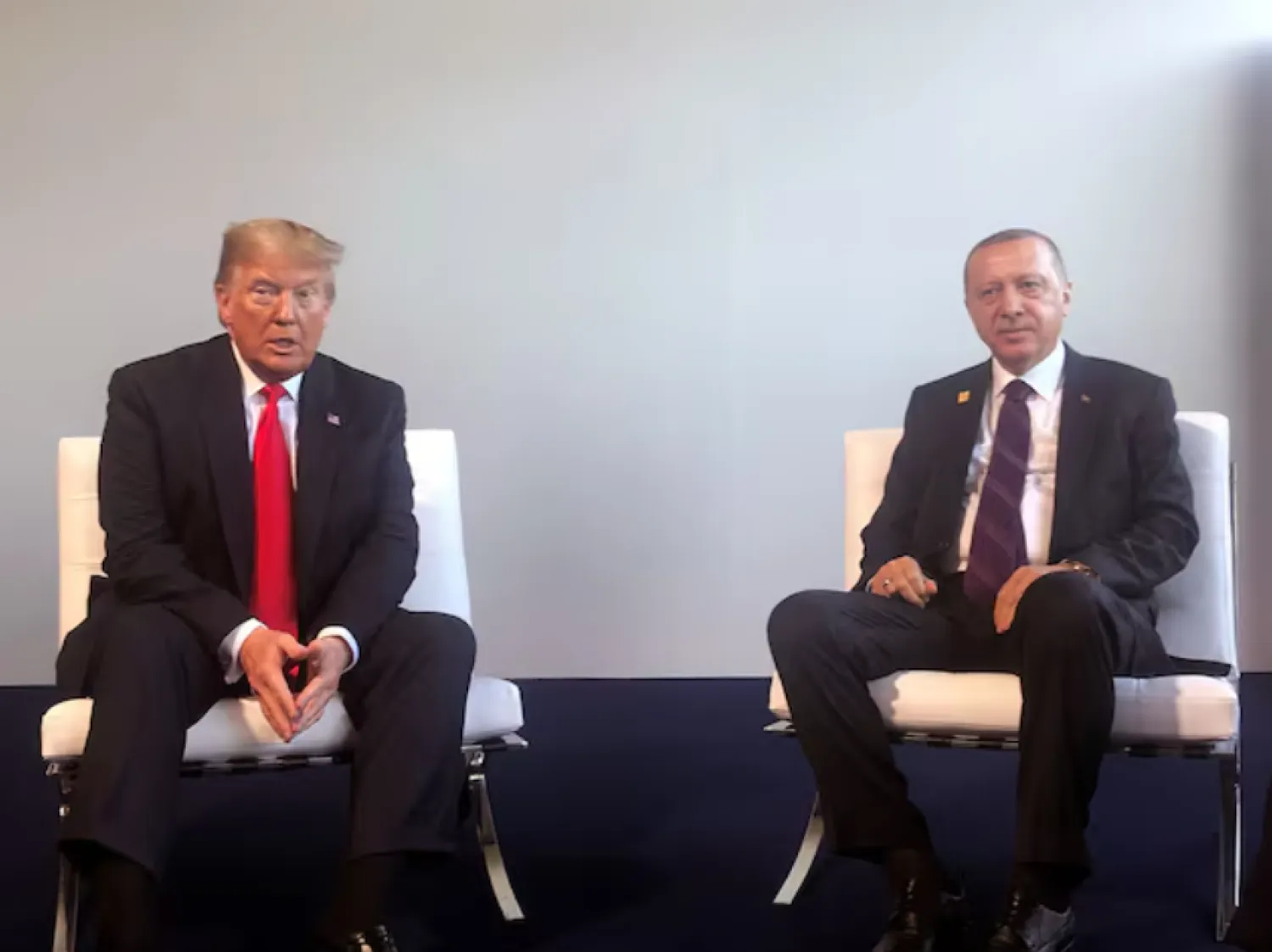President Tayyip Erdogan sought to reset Türkiye's strained ties with the United States by inviting President-elect Donald Trump to visit, and said Trump spoke very positively about Türkiye during a phone call.
Trump's election victory this week was generally met with cheer in NATO-member Türkiye, with markets rallying and some officials cautiously optimistic about prospects for new US economic policies.
Erdogan told reporters on a flight back from a European summit in Budapest that he hoped Trump would accept the invitation.
He said he hoped a visit would strengthen cooperation between Türkiye and the United States and lead to a relationship "different from (Trump's) previous term", when clashes on a number of issues led to Washington imposing punitive tariffs that hurt Türkiye's economy.
"We had a sincere call with Mr. Trump while he was at a family dinner (that included) Elon Musk and Musk's child," Erdogan said of the Wednesday call, according to an official Turkish readout.
"He had very nice things to say about Türkiye regarding the period ahead. We invited him to our country. I hope he accepts..."
Ankara's cooperation with Trump's White House could also help solve regional crises, added Erdogan, who has led Türkiye for more than 21 years in what opponents call an increasingly authoritarian style, accusations he denies.
Outgoing US President Joe Biden did not visit Türkiye during his term and Erdogan's planned White House visit early this year fell through with little explanation, underlining the cool relations.
While Erdogan and Trump had closer personal bonds in Trump's 2017-21 term as president, it was also a period of strained bilateral ties due to disputes over Washington's ties with Kurdish fighters in Syria and over Ankara's ties with Moscow.
An official in Erdogan's AK Party told Reuters that Ankara expects the Trump administration to be more flexible and understanding of its security needs, especially against the outlawed Kurdistan Worker's Party (PKK) in Syria and Iraq.
After Trump's election win, Türkiye's lira touched its strongest level in weeks, while Istanbul stocks have since risen more than 5%.
Trade Minister Omer Bolat said on Thursday he expected Trump to lower tariffs on Türkiye's steel and textile exports, even as Trump has promised to levy 10% tariffs on all imported goods.
The fallout still lingers from clashes between Türkiye's and the United States during Trump's first term, when Washington was angered by Türkiye's purchase of a Russian missile defense system and the jailing of US citizens including a pastor.
The Turkish economy bore the brunt of the strains, including higher tariffs on metal imports imposed by Trump in 2018, contributing to the first in a series of lira currency crises that set off years of soaring inflation.
The strains grew in 2019 as Türkiye launched an incursion against a Syrian Kurdish militia that Ankara calls a terrorist group but which is a US ally against ISIS.
At the time, Trump threatened to "totally destroy and obliterate" Türkiye's economy over the operation. He sent Erdogan a letter saying: "You don't want to be responsible for slaughtering thousands of people, and I don't want to be responsible for destroying the Turkish economy - and I will."
Sinan Ulgen, a former Turkish diplomat and director of the Center for Economic and Foreign Policy Studies (EDAM) said Ankara would probably be happy with a Trump victory in the short term, making it easier to open dialogue after the stand-offish Biden years.
But broader foreign policy differences on issues such as the Israeli-Palestinian conflict and Syria could still become thorny in the long term, he added.
"Ankara will try to create an agenda aimed at a reset in Turkish-American ties. This can easily turn into a more transactional relationship that Trump can get on board with," he said. "What the United States' expectation will be of Türkiye in such a relationship, that needs to be cleared up."









